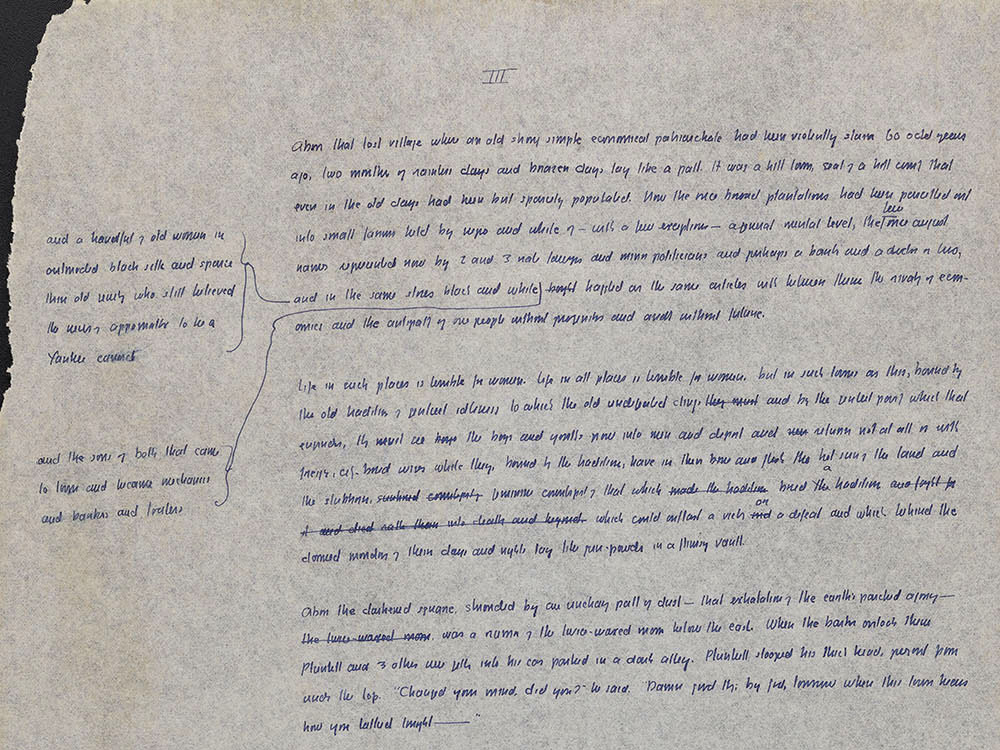TRANSCRIPTION
III
About that lost village where an old strong simple economical patriarchate had been violently slain 60 odd years
ago, two months of rainless <days> and brazen days lay like a pall. It was a hill town, seat of a hill county that
even in the old days had been but sparcely populated. Now the once broad plantations had been parcelled out
into small farms held by negro and white of – with a few exceptions – [general?] mental level, the few once august
names represented now by 2 and 3 male lawyers and minor politicians and perhaps a banker and a doctor or two,
[margin: and a handful of old women in outmoded black silk and sparce thin old [illegible] who still believed
the news of Appomattox to be a Yankee canard]
and in the same stores black and white
[margin: and the sons of both that came to town and became mechanics and bankers and loafers]
<bought> haggled over the same articles with between them the rivalry of econ-
omics and the antipathy of one people without progenitors and another without future.
Life in such places is terrible for women. Life in all places is terrible for women, but in such towns as this, bound by
the old tradition of genteel idleness to which the old undefeated cling, <they must> and by the genteel part which that
[engenders?], they must see <boys> the boys and youths grow into men and depart and <nev> return not at all or with
foreign, city-bred wives while they, bound by the tradition, have in their bone and flesh the hot sun of the land and
the stubborn, <sunbred counterpart of> feminine counterpart of that which <made the tradition> bred <the> a tradition <and fought for
it and died with them into death and beyond.> which could outlast a victory <and> or a defeat and which behind the
[illegible] monotony of their days and nights lay like gun-powder in a flimsy vault.
Above the darkened square, shrouded by an unchanging pall of dust – that exhalation of the earth's parched agony –
<the twice-waxed moon> was a rumor of the twice-waxed moon below the east. When the barber overtook them
Plunkett and 3 others were getting into his car parked in a dark alley. Plunkett stooped his thick head, peering out from
under the top. "Changed your mind, did you?" he said. "Damn good thing, by God, tomorrow when this town hears
how you talked tonight ––
|


